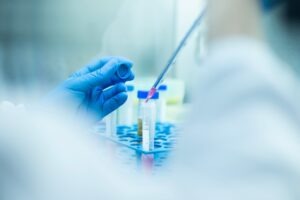GeoVax Labs, a biotechnology company developing human vaccines, has expanded its collaboration activities with Leidos, to develop malaria vaccine candidates.

Image: GeoVax and Leidos expand collaboration to malaria vaccines. Photo: courtesy of SweetCrisis / FreeDigitalPhotos.net.
Subscribe to our email newsletter
The work will be supported under a contract to Leidos from the United States Agency for International Development (USAID) Malaria Vaccine Development Program (MVDP). Leidos has been tasked by USAID to advance promising vaccine candidates against P. falciparum malaria and selected the GeoVax MVA-VLP platform as part of this development effort.
GeoVax’s vaccine technology is based on its live Modified Vaccinia Ankara (MVA) platform, which generates vaccine antigens, in the form of multimeric proteins or noninfectious VLPs, in the individual being vaccinated.
Gene sequences of target antigens are inserted into the MVA genome which drives their expression and budding from the infected cells. In this way, vaccination strategy mimics a natural viral infection which induces two pools of proteins – virus-infected cells and released multimeric or VLP proteins.
Farshad Guirakhoo, PhD, GeoVax’s Chief Scientific Officer, commented, “Currently there is a shortage of malaria vaccine candidates that can offer the high efficacy rates (e.g. >75%) set by the World Health Organization (WHO) as a requirement for the second-generation malaria vaccines.
Although protein-derived vaccines can deliver multiple antigens in immunogenic VLP conformation, they hardly produce a balanced functional cellular immune response needed to confer a high protection. In contrast, vectored-derived live vaccines are capable of producing the appropriate balanced immune responses, but they suffer from limitations in delivering the required number of transgenes needed to protect against all stages of malaria parasite.
GeoVax’s MVA-VLP platform can overcome both limitations of antigen conformation and transgene capacity by delivering multiple transgenes (e.g. from parasite’s liver stage, blood stage and mosquito stage) in the form of VLPs delivered in vivo. This new collaboration with Leidos complements our ongoing malaria vaccine development project with Burnet Institute in Australia and offers multiple opportunities for success.”
David Dodd, GeoVax’s President and CEO, said, “We are delighted to broaden our relationship with Leidos to include malaria vaccines. This remains a significant unmet healthcare need and we believe that this collaboration has the potential to result in a significant improvement in this critical area.
“Our hope is to successfully proceed through product development and identify promising vaccine candidates that can be taken into clinical development as quickly as possible, demonstrating an effective, safe vaccine for malaria prevention. We are confident that our technology, combined with Leidos’ has an excellent chance for success.”
Source: Company Press Release
 Advertise With UsAdvertise on our extensive network of industry websites and newsletters.
Advertise With UsAdvertise on our extensive network of industry websites and newsletters.
 Get the PBR newsletterSign up to our free email to get all the latest PBR
news.
Get the PBR newsletterSign up to our free email to get all the latest PBR
news.

